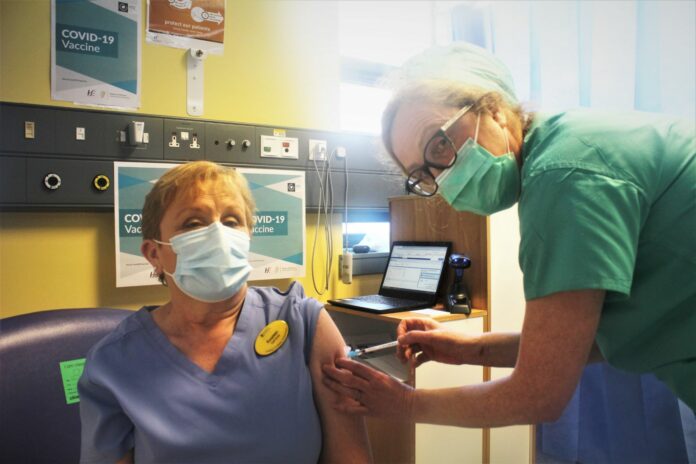A SENIOR intensive care clinician has warned health services are on a “war time” footing due to increasing cases of Covid-19.
The head of the intensive care unit at University Hospital Limerick, Dr Catherine Motherway, has also stated some healthcare services will have to shut down, if Covid-19 figures continue to rise.
Her warning came before official figures revealed the number of confirmed Covid-19 cases in the Mid-West totalled 5,381 from November 9 to November 22.
There were 1,361 new cases of the virus in Clare, 1,975 in Tipperary and 2,045 in Limerick during this 14-day period.
The 14-day incidence for November 22 is 1,145 in Clare 1,237 in Tipperary and 1,049 in Limerick per 100,000 population.
Speaking on RTÉ’s Morning Ireland earlier this week, Dr Motherway said that healthcare staff are “stretched and operating on a day-to-day basis” and noted that patients may not receive the same level of care as they would “in peace time”.
She also revealed that half of the ICU capacity at UHL currently revolves around caring for Covid-19 patients, and noted that scheduled surgeries are being cancelled.
Dr Motherway explained that the hospitalised Covid patients include older people with underlying conditions, but also that she is seeing a younger cohort who are presenting with severe Covid symptoms.
“They have come to the ICU because they’re not vaccinated. If we could explain to people who have yet to be vaccinated: if you’re young and relatively healthy, and you have a vaccine and you have been vaccinated, you are very unlikely to meet me and my colleagues in intensive care and it’s far better not to meet us than to end up in ICU.”
Meanwhile, the Department of Public Health Mid-West has reiterated its call for Clare people to reduce or pause high-risk social activity, as the region recorded more than 4,300 new Covid-19 cases over a 14-day period.
The department is particularly concerned about the high rate of social activity over the past two to three weeks, amid increasing levels of infection among the more active adult population, particularly between the ages of 18 and 44.
It is prioritising investigations of, and responses to, outbreaks in key vulnerable settings, such as nursing homes, healthcare settings, settings with elderly and immunocompromised, and settings with vulnerable populations and those with poor health outcomes.
As a result of this and the current prevalence of Covid-19 in the community, outbreaks in other settings may be less likely to be identified or recorded.
Director of Public health Mid-West Dr Mai Mannix said Covid-19 is circulating widely across the region with a high level of exposure in every pocket of society.
“We know, from experience of previous waves of this magnitude, that a social outbreak in one area can have a negative impact at a vulnerable setting in another area.
“While many of us are protected against Covid-19, breakthrough infections are occurring due to the high level of transmission in the community.”
Dr Mannix pointed out there has been a considerable increase in social activity among all age groups in various settings.
Dan Danaher
East Clare correspondent, Dan Danaher is a journalism graduate of Rathmines and UL. He has won numerous awards for special investigations on health, justice, environment, and reports on news, agriculture, disability, mental health and community.



